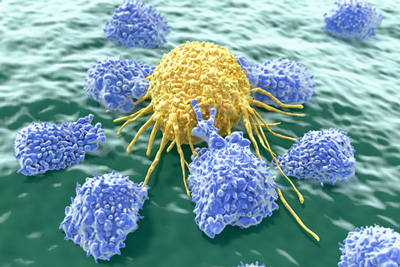First patient treated in fourth dose level NKR-2 Phase I/IIa trial
Posted: 23 June 2016 | | No comments yet
The study is evaluating Celyad’s NKR-2 T-cell therapy using T-cells with NKG2D receptor in patients suffering from AML or multiple myeloma…


Celyad has announced the infusion of the first patient enrolled in the fourth dose level of its Phase I/IIa clinical trial.


The study is evaluating the safety and feasibility of its NKR-2 T-cell therapy using T-cells with NKG2D receptor in cancer patients suffering from acute myeloid leukaemia (AML) or multiple myeloma (MM).
Dr Christian Homsy, CEO of Celyad, commented: “We are pleased to have enrolled the first patient in the fourth dose level cohort of this study on track and are encouraged that no adverse safety signals have been observed so far for the nine patients already treated with
NKR-2. We are actively working on the recruitment of the two next patients for this new dose level and we look forward to the data that are expected in the next few months”
Dr Frédéric Lehmann, Head of Immuno-Oncology at Celyad: «The infusion of the 10thpatient demonstrates good progress in our first-in-human NKR-2 Phase I/IIa study. This technology has great potential in multiple cancer indications and we look forward to completing this Phase I/IIa and moving to the next stage in clinical development.”
The potential of NKR-2
NKR stands for Natural Killer Cell Receptor. NKG2D CAR T-cells are now called NKR-2 T-cells and the product development name is NKR-2.
Existing CAR-T cells are engineered using constructs encoding an antibody single chain variable fragment, the signalling domain of CD3 zeta and one or more co-stimulatory domain(s). In contrast to existing CAR-T cells, NKR-2 is a T-Cell encoded to express the human Natural Killer activating receptor, NKG2D and the signalling domain of CD3 zeta. Using the human Natural Killer cell receptor, unlike traditional CAR technologies, NKR-2 has the potential to:
- Bind to 8 different ligands that are expressed by a vast majority of cancer cells, both haematological and solid malignancies.
- Target and kill tumours as well as the blood vessels that feed them and also express the ligands of the NKG2D receptor.
- Act on the immunosuppressive microenvironment within tumors resulting in the inhibition of the mechanisms which enable tumour to evade the immune system.
- Induce adaptive auto-immune response resulting in the creation of a long term cell memory against the targeted tumour.
Dr Lehmann recently wrote an article for European Pharmaceutical Review on NKR technology. You can find out more here.





